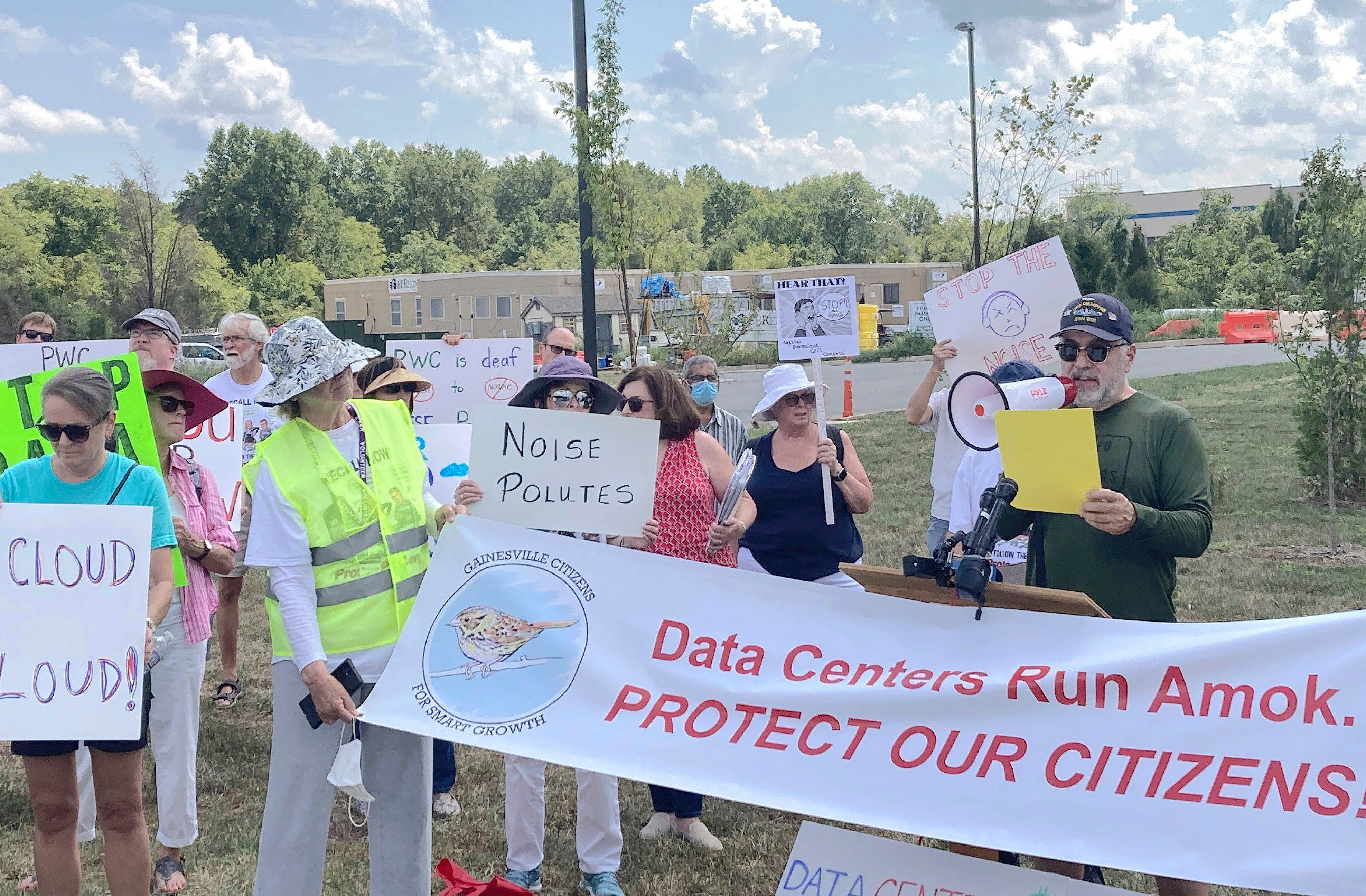Backlash to data centers prompts political upset in northern Virginia
The tech industry’s drive to dot the Virginia landscape with data centers may have hit a snag this week in Prince William County

The tech industry's drive to dot the Virginia landscape with data centers may have hit a glitch this week in Prince William County.
Residents of the state's second most populous jurisdiction delivered perhaps the biggest upset among a series of surprising election results in Tuesday’s Democratic primary, when political newcomer and data center opponent Deshundra Jefferson knocked off the county's top elected official, Ann Wheeler.
Last year, Wheeler led a majority on the Board of Supervisors that approved a plan to rezone more than 2,000 acres (809 hectares) of farmland to accept data centers, which house the computer servers and hardware required to support modern internet use.
The plan, called the Prince William Digital Gateway, prompted one of the region's biggest land-use disputes in decades. It was approved despite vocal opposition from residents concerned that the data centers are noisy, ugly, and consume massive amounts of electricity that require the addition of high-voltage transmission lines.
“Ann Wheeler’s loss should send a shockwave to the industry,” said Elena Schlossberg with the Coalition to Protect Prince William County, one of many data center opponents who supported Jefferson.
The outer suburbs of northern Virginia have a long history fighting development projects. Most famously, county residents successfully derailed a planned Disney theme park 30 years ago that many people believed was a done deal when the entertainment giant announced its plans in 1993.
Now, northern Virginia is home to the world's largest concentration of data centers. Tech companies like to place the centers here, in part because the region's proximity to the nation's traditional internet backbone allows the servers in those data centers to save nanoseconds that are crucial to support financial transactions, gaming technology and other time-sensitive applications.
While data center proposals have prompted opposition from neighboring residents, local governments have been reluctant to turn them away because of the tax revenue they generate. In neighboring Loudoun County, the world's largest concentration of data centers now contributes 30% of the county's general fund revenue and has resulted in significant cuts to the county's residential property tax rate.
Jefferson capitalized on data center discontent in her campaign, saying Prince William was too eager to emulate Loudoun, offering discounted tax rates to data centers to lure them in.
“We’re luring these big data centers but we’re not really taxing them appropriately. What benefit are we really getting?” she said.
The morning after her election, Jefferson was on her regular morning commute to work, taking a commuter bus from Prince William County to her job in the nation’s capital, contemplating the ramifications of a victory she admitted she did not anticipate.
“It was hard to beat an incumbent,” she said in a phone interview. “I was not just running against her — I was running against the whole Democratic Party.”
She said she heard from numerous voters who believed the data center issue was emblematic of a government more responsive to corporate interests than citizen concerns.
“People were just expressing their anger and frustration because they’re just wanting someone to listen,” she said.
Josh Levi, president of the Data Center Coalition, an industry trade group, said that data centers can make a compelling argument to local officials about the tax benefits that accrue from hosting data centers.
“The industry prioritizes maintaining an open, active, and collaborative dialogue with elected officials and candidates for office, their constituents, and other community stakeholders,” he said in a statement.
The political upset comes as Republican Gov. Glenn Youngkin has embraced data centers. Earlier this year, Youngkin and Amazon Web Services announced a $35 billion plan to invest in data centers across the state.
Youngkin, on a recent tour of Amazon's new headquarters complex in Arlington, said he still believes the data center deal is a good one. He emphasized that the deal contemplates putting data centers across the state, not just in northern Virginia jurisdictions that are becoming increasingly resistant.
“We can have great economic development projects and we can have a great place to live,” he said.
Jefferson will now face Republican Supervisor Jeanine Lawson, another data center opponent, in November.
Bookmark popover
Removed from bookmarks